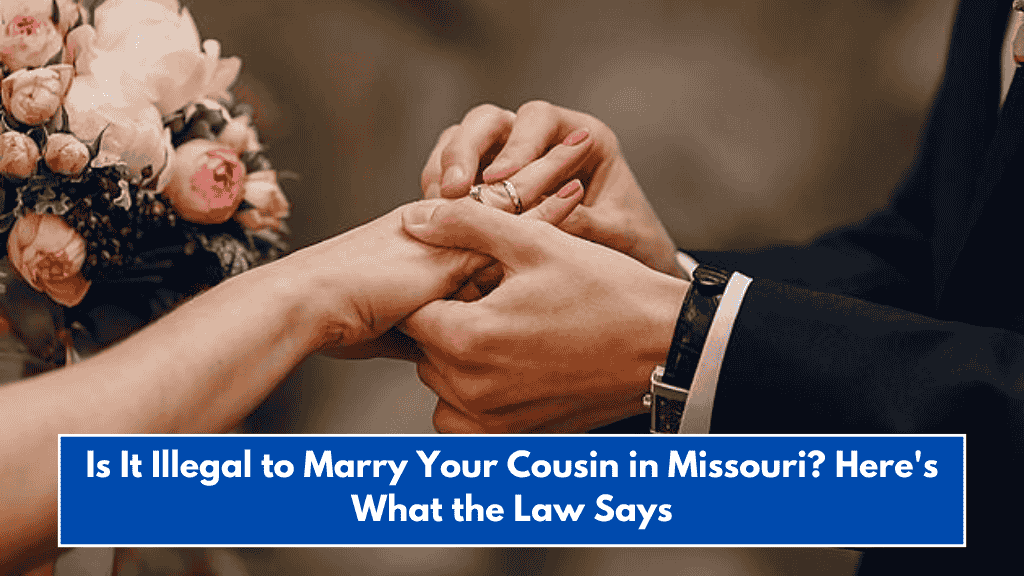Marriage between relatives has always been a topic of debate, and in Missouri, it’s no different. While it may sound surprising to some, many well-known figures from history, including Albert Einstein and Charles Darwin, married their first cousins. Even U.S. President Franklin D. Roosevelt and his wife Eleanor were distant cousins — fifth cousins once removed.
But what does Missouri law say about cousin marriages today? Let’s take a closer look.
First Cousin Marriages Are Not Allowed in Missouri
According to Missouri law, first cousins cannot legally marry in the state. This rule is clearly written and enforced, and the state does not allow any exceptions.
This means if two people share the same grandparents, they are considered first cousins — and they are not allowed to marry in Missouri.
Other Family Relationships Also Banned from Marriage
Missouri also bans marriage between other close family members. These include:
Parents and Children
This includes both biological and adopted relationships.
Grandparents and Grandchildren
No matter how distant the degree, these relationships are not allowed to marry.
Siblings (Full or Half)
Whether they share one or both parents, brothers and sisters cannot marry.
Uncles and Nieces, Aunts and Nephews
These types of marriages are also clearly forbidden under Missouri law.
The goal of these restrictions is to prevent close blood relatives from marrying, which could lead to health risks in children born from such unions.
So Who Can Cousins Marry?
While first cousins are not allowed to marry in Missouri, more distant cousins can legally get married. These include:
- First cousins once removed (the child of your first cousin)
- Second cousins
- Third cousins
- And even more distant relatives
Because the law only bans first cousins, it is perfectly legal for Missourians to marry a cousin with whom they share a more distant common ancestor.
The Health Risks Behind Cousin Marriages
Some countries and cultures allow marriages between cousins, but scientists have warned of health risks when close relatives marry. According to Dr. Hanan Hamamy, a genetics expert at Geneva University in Switzerland, children born to parents who are second cousins or closer may have a higher risk of genetic disorders.
These risks include:
- Autosomal recessive genetic conditions
- Birth defects or congenital health issues
That’s why many regions, including Missouri, have banned first cousin marriages — not just due to tradition or values, but also because of scientific evidence.
In Missouri, the law is clear: first cousins are not allowed to marry. The same goes for other close family relationships like siblings, parents, grandparents, aunts, and uncles. However, more distant cousins — like second or third cousins — can marry legally in the state.
These laws exist to reduce the risk of health problems in children and to maintain a standard of public safety. While cousin marriage might still be allowed in some other U.S. states or parts of the world, Missouri has drawn a firm line when it comes to close family marriages.
Knowing these rules is important, especially for people considering marriage across family lines or those moving to or from Missouri. Always check local laws to stay on the safe side.














